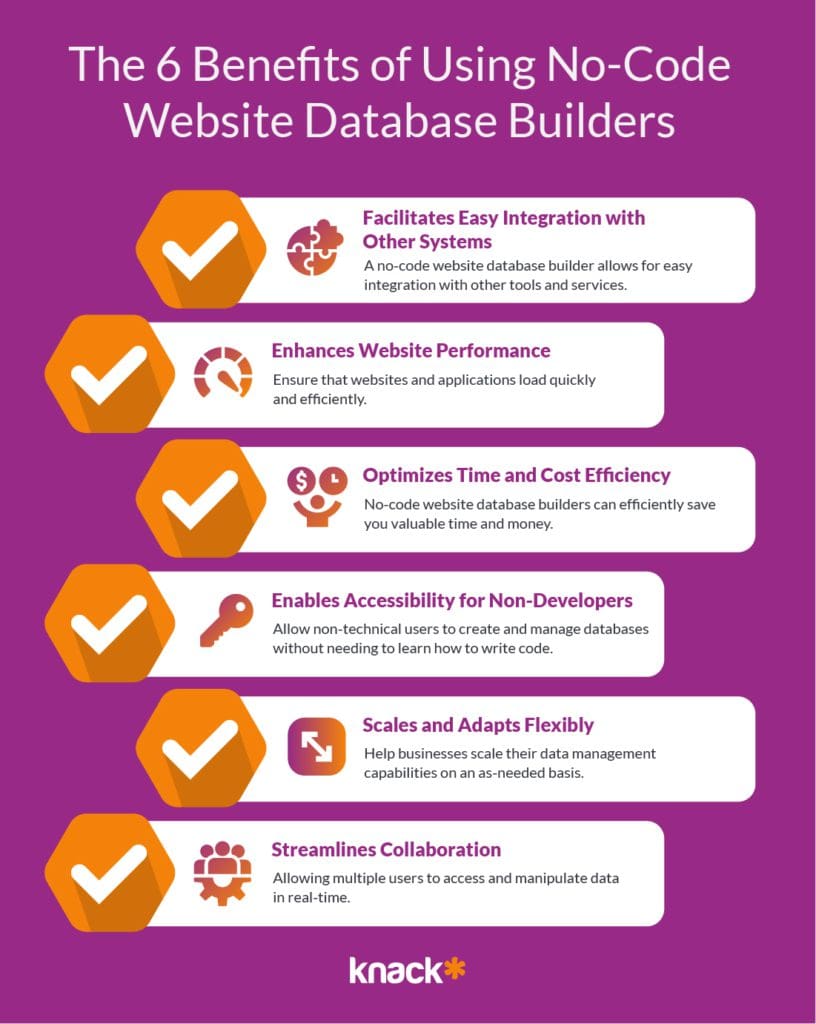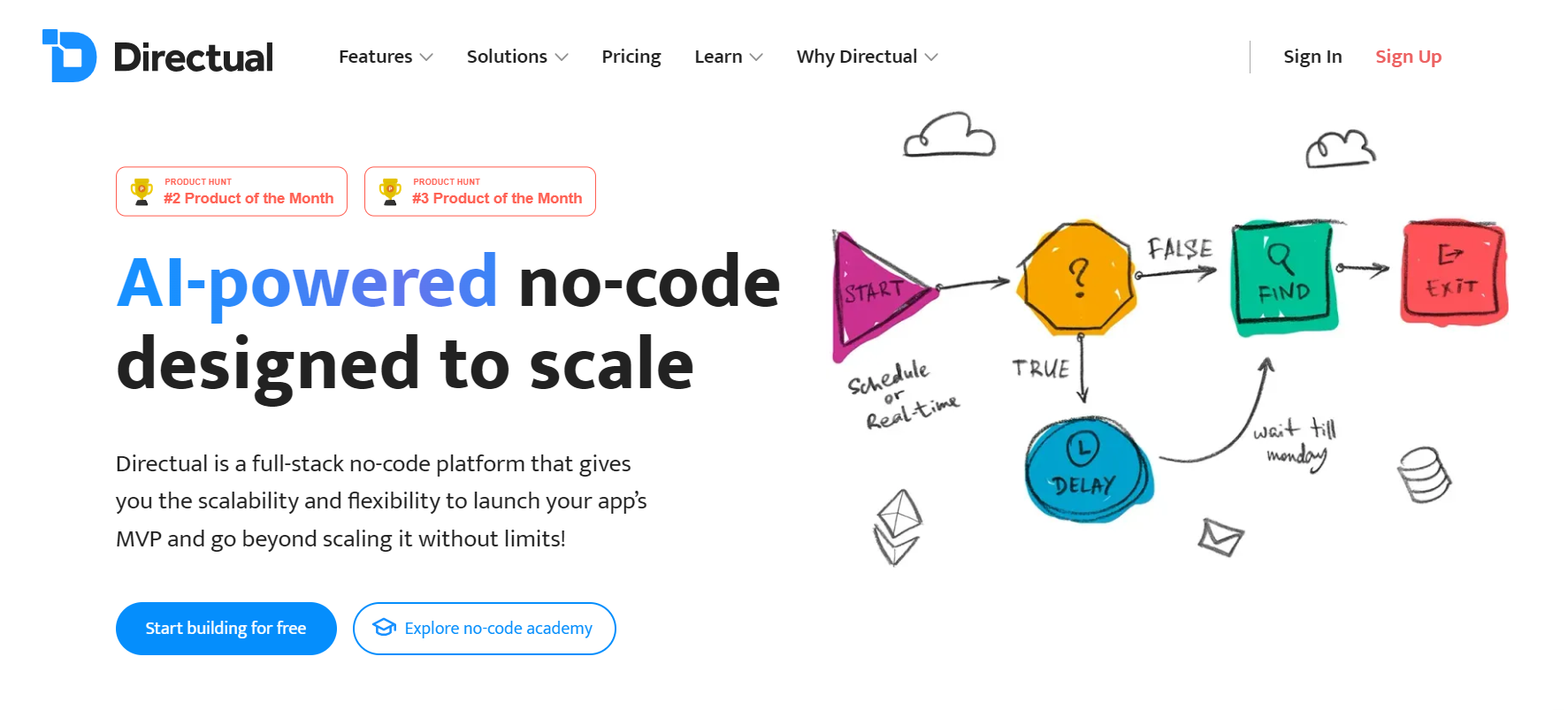Unlock the Power of No-Code for Open Platform Database Creation
Wiki Article
Checking Out the Benefits of Scalable Databases That Call For No Coding Abilities for Efficient Data Administration Solutions
The development of scalable data sources that get rid of the need for coding skills offers a transformative chance for companies seeking reliable data management options. By enabling non-technical customers to harness the power of data with intuitive interfaces, these systems boost availability and foster collaboration across varied teams. Moreover, their cost-effectiveness and versatility to advancing company needs can dramatically streamline functional procedures. As we think about the effects of such advancements, it ends up being critical to analyze just how they can improve the landscape of information management and drive sustainable growth in an affordable setting.Improved Accessibility for Users
Boosted accessibility for users is an essential element of scalable databases, ensuring that data management systems are user-friendly and instinctive. In a period where data-driven choices are paramount, access permits a broader variety of individuals, including those without extensive technological knowledge, to engage with data source systems successfully. This democratization of data access assists in improved cooperation throughout divisions, equipping workers to extract understandings and make educated choices.Straightforward interfaces, such as drag-and-drop features and aesthetic data representation, streamline complicated data interactions. These improvements decrease the learning contour related to standard database monitoring, enabling customers to focus on leveraging information as opposed to grappling with technological intricacies. Furthermore, scalable data sources commonly incorporate real-time analytics and customizable control panels, offering individuals with immediate insights customized to their specific requirements.

Cost-Effectiveness and Resource Savings
Reliable data monitoring not only rests on access however also on cost-effectiveness and source savings. Scalable data sources developed for customers without any coding abilities considerably lower monetary burdens normally associated with standard database administration systems. By removing the requirement for specialized shows competence, organizations can allocate their sources more effectively, concentrating funds on core company tasks instead of comprehensive training or working with competent employees.Furthermore, these data sources frequently make use of cloud-based solutions, which even more lower prices connected to equipment and upkeep. Organizations can scale their data source services according to their requirements, staying clear of the expenditures sustained from over-provisioning resources. This adaptability implies services can adjust to changing needs without incurring unneeded prices, causing considerable long-lasting cost savings.
In addition, straightforward user interfaces simplify data entry and administration processes, lowering the time spent on administrative tasks. This efficiency translates into labor cost financial savings, allowing groups to concentrate on tactical initiatives as opposed to routine upkeep. On the whole, taking on scalable data sources that call for no coding abilities promotes a much more economical strategy to information monitoring, making it possible for companies to maximize their resources while maintaining high degrees of functional effectiveness.
Improved Partnership Across Teams

In addition, scalable databases help with seamless interaction amongst employee. With user-friendly interfaces that require no coding abilities, staff members can conveniently develop, modify, and share reports or dashboards tailored to their particular requirements. This democratization of data equips non-technical individuals to contribute insights, boosting the joint setting.
In addition, these data sources sustain simultaneous accessibility, permitting numerous customers to work with the very same dataset all at once. This attribute enhances productivity, as teams can click site participate in joint data evaluation without the threat of variation control problems. The capability to leave notes or comments directly within the database further advertises dialogue and makes clear information interpretations.
Streamlined Data Administration Processes
In today's data-driven environment, organizations identify the need of structured data management refines to take full advantage of efficiency and accuracy. By leveraging scalable data sources that need no coding skills, companies can simplify their information handling and decrease the complexities typically related to standard database systems. This accessibility encourages non-technical customers to engage directly with information, helping with quicker decision-making and reducing dependence on specialized IT workers.Streamlined information management procedures improve workflow by automating regular tasks such as information entrance, recognition, and coverage. Automated data assimilation guarantees that details from numerous sources is accumulated effortlessly, getting rid of silos and fostering a linked view of vital service metrics (no-code). User-friendly user interfaces allow personnel to control data conveniently, enabling them to generate understandings that drive strategic initiatives without the need for substantial training.
This performance not only speeds up functional processes but likewise decreases the capacity for human error, making sure that information remains reputable and precise. Inevitably, structured data administration procedures via scalable data sources lead to enhanced efficiency, enabling companies to concentrate on core tasks while making certain that their information management practices are reliable and reliable.
Scalability for Expanding Companies

For broadening enterprises, the ability to scale up or down is crucial. A scalable data source can manage an increase of data generated from brand-new clients, products, or solutions, making certain that service operations continue to be undisturbed. These databases give the ability to manage peak lots effectively, which is essential throughout periods of fast growth or check my reference seasonal spikes.
In addition, numerous scalable database solutions are designed with straightforward user interfaces that need no coding abilities, equipping non-technical team to handle information efficiently (no-code). This democratization of information management enables organizations to designate sources strategically and minimize dependency on specialized IT workers
Inevitably, adopting a scalable data source not just enhances functional performance however additionally fosters an atmosphere where organizations can evolve and innovate without the restrictions of typical database systems. This versatility settings companies for long-term success in today's competitive landscape.
read this article
Verdict
In final thought, scalable databases that require no coding abilities supply considerable advantages for effective data management. By streamlining information monitoring procedures and providing scalability for growing organizations, such options allow organizations to adapt to altering demands efficiently.Enhanced access for customers is a crucial facet of scalable data sources, making sure that data monitoring systems are user-friendly and instinctive.Straightforward interfaces, such as drag-and-drop features and aesthetic information representation, simplify complicated data communications. Generally, adopting scalable data sources that need no coding abilities promotes a more economical method to information administration, allowing companies to optimize their resources while keeping high degrees of functional performance.
By leveraging scalable databases that require no coding abilities, organizations can streamline their data handling and minimize the complexities usually associated with standard data source systems - no-code.Structured information administration processes boost process by automating regular jobs such as data access, validation, and coverage
Report this wiki page